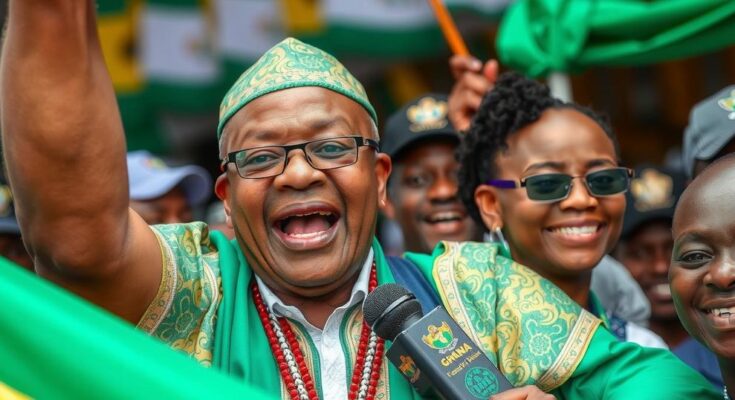Former President John Dramani Mahama has won Ghana’s presidential election with 56.55% of the vote, as announced by the Electoral Commission. His rival, Vice President Mahamudu Bawumia, conceded defeat to maintain peace. Mahama’s election marks his return to power following a previous term from 2012 to 2016, amid economic concerns attributed to the current administration.
On Monday, Ghana’s Electoral Commission announced that former President John Dramani Mahama has won the presidential election held on Saturday with a decisive 56.55% of the vote. This election resulted in the conceding of defeat by his opponent, Mahamudu Bawumia, the Vice President and ruling party’s candidate, who admitted loss in both the presidential and legislative elections on Sunday, thereby reducing potential tensions following the announcement.
The commission reported that it had finalized vote counts from 267 of the 276 constituencies, indicating a voter turnout of 60.9%. Mahama, aged 66, returns to political office after serving as president from 2012 to 2016 and has criticized Bawumia’s agenda as a perpetuation of harmful governance that contributed to a significant economic crisis in Ghana’s recent history.
The recent presidential election in Ghana reflects a crucial moment in the nation’s political trajectory, marking the return of John Dramani Mahama as a key figure after his previous term ended in 2016. His ascendance is viewed in context of the deteriorating economic conditions during the past administration, under which Mahamudu Bawumia served as Vice President. The elections are also significant as they represent the vibrant democratic structure in Ghana, an indicator of the nation’s electoral maturity amidst challenges.
In summary, John Dramani Mahama’s victory in the recent presidential election signifies a significant political shift in Ghana, marked by notable voter engagement and a peaceful transition of power. His critique of the prior administration’s policies underscores the public’s yearning for economic recovery and effective governance. The outcome further demonstrates the robust electoral process in Ghana, which allows for competitive representation and democratic expression.
Original Source: www.usnews.com




